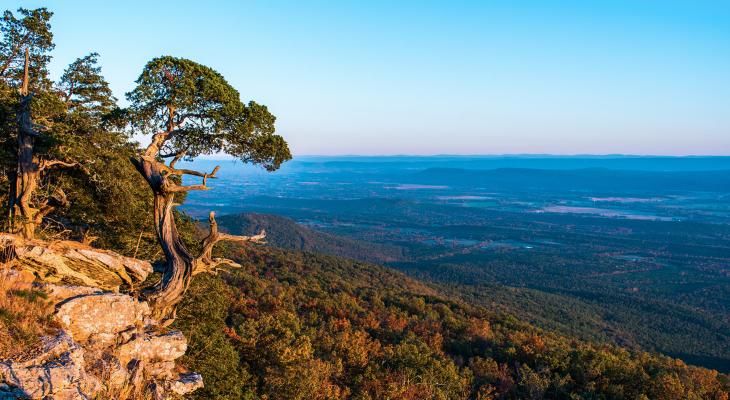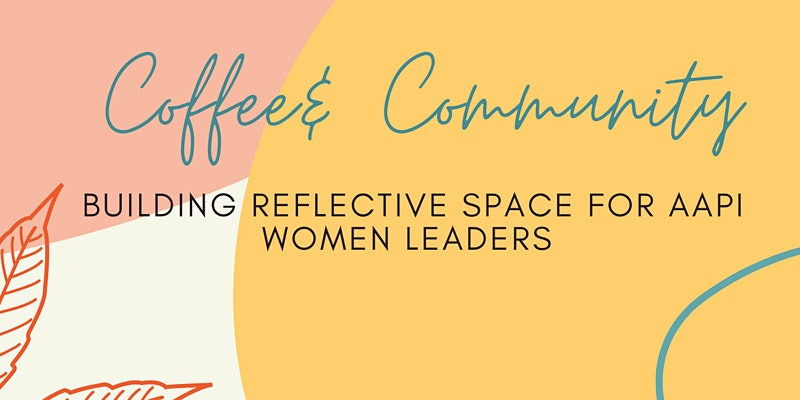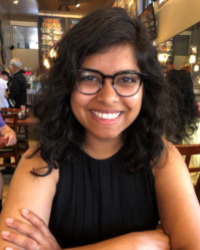How an Arkansas Childhood Inspired Welcoming Spaces for AAPI Women
November 9, 2021

Growing up in a small town in Western Arkansas, we found a lot of different ways to spend a Saturday night. For some of my high school classmates, this involved gathering in a quiet Walmart parking lot, one of the few free and open spaces for young people in our town. Others spent their evening walking around the mall, eating pretzels and perusing the local mall. For me, Saturday nights were one of the few times I reconnected (sometimes reluctantly) with my Indian and Hindu heritage.
Our family often hosted community “bhajans” or prayers these nights, complete with incense, Sanskrit prayers, colorful Hindu idols and tons of puris, chana masala, and my favorite dessert- rasmalai. I didn’t always look forward to going. I didn’t enjoy sitting cross-legged for an hour reciting prayers; I wanted to spend time with other young people my age. Yet, those events were the only part of my week where I could explore aspects of my identity and heritage that typically lay dormant during the week. I felt an internal tug of war: I wanted to learn more yet felt afraid doing so would jeopardize my own tenuous sense of belonging.
As an Indian American, Hindu woman growing up in Arkansas, I spent most of my life navigating the ways my identity clashed with the broader community around me. I ate different foods and practiced a different religion. While my classmates shopped at Dillard’s for their prom dresses, I decided (in a brief moment of protest) to wear a mustard-colored saree. Whether or not I wanted to be, I was defined by being a child of immigrants, Indian American and Hindu since I visibly looked so different from the people around me. I knew I was “other” and try as I might, the people around me wouldn’t let me forget it. I spent these years navigating the complexities of human relationship, holding space for people who were both curious about my cultural and religious perspective yet who were also deeply afraid of what it meant to cultivate a friendship with someone like me. It was simultaneously exhausting, meaningful, and confusing.
Register here to join these community conversations for AAPI women.
My experiences in Arkansas were my first entryway into interfaith and racial justice facilitation, though I didn’t realize that at the time. The numerous hours I spent with classmates and friends explaining my understanding of Hinduism forced me to explore my own relationship with spirituality. As I continued my education, I sought out spaces to further explore my identity as an Indian American and a Hindu and Buddhist practitioner. In college in St. Louis, I worked in our university interfaith organization and cultivated many deep meaningful friendships with other young Asian American and Pacific Islander (AAPI) women exploring their faiths. Yet, the further I progressed in my education – attending medical school and moving to the Bay Area for my pediatric residency – the less and less I could bring my full self to work. I missed the conversations I had, however challenging, about who I was, where I came from, and what I believed. I craved space to explore how my cultural and spiritual practice influenced the work I did today.
Share

This deep yearning to explore my own experiences and build deeper relationships with other AAPI women navigating similarly complex identities led me to co-create “Coffee and Community: Reflective Spaces for AAPI Women Leaders.” This event was borne out of numerous conversations with my close friend Grace Ha, a second-generation Korean-American woman raised in Pennsylvania. Though coming from a very different background, she too had spent most of her life navigating myriad aspects of her identity while constantly being in a minority. Over numerous cups of tea at our local coffee shop, we shared countless stories about what it meant for us to grow up as Asian-American and all the common experiences we faced, even though we came from different cultural and spiritual backgrounds.
We created this two-hour event because we wanted others to experience what we cultivated within our own friendship – a safe and vulnerable space for women in the AAPI community to pause, reflect on our multifaceted identities and explore how it impacts our work, relationships, and our commitment to justice. While our event is catered to “AAPI Women Leaders,” (since that terminology reflects our own lived experience), we welcome anyone within the AAPI community who identifies as a gender-minority or who identifies with the space we are trying to create. Our first event, was Sunday, November 7, held in-person at an outdoor venue in San Francisco while our November 20 event will be virtual.
We hope this event will serve as the first of many conversations about the complexity of our identities and how they impact our sense of belonging. To learn more or to register to join us, please check out our website.

Dr. Anu Gorukanti
Dr. Anu Gorukanti, a pediatrician based in the San Francisco Bay Area, is co-Founder, Introspective Spaces – Building Reflective Space for Women in Healthcare.



